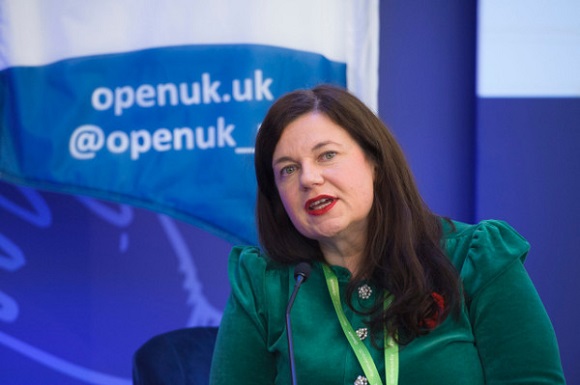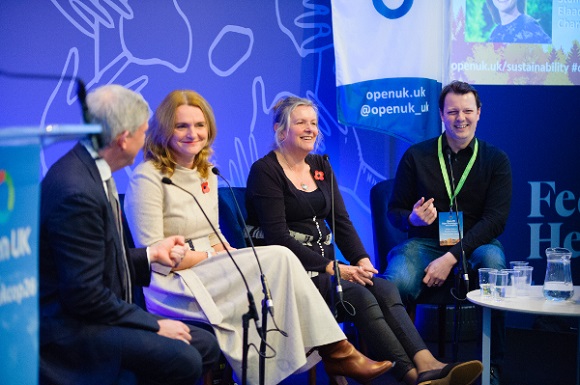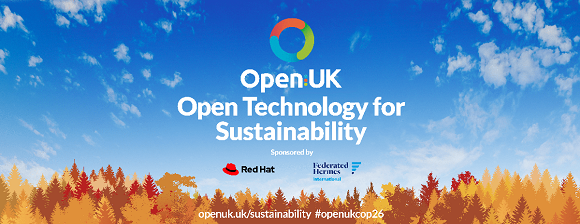OpenUK widens open path to carbon-neutral future
Computer Weekly recently reported on open source championing not-for-profit OpenUK puts forward plan to reduce the environmental impact of datacentres, with an emphasis on encouraging site and hardware reuse
The news came in line with the COP26 event, which obviously attracted a large number of politicians, not-for-profit organisations, businesses and charities to discuss what actions were needed to tackle future energy production challenges and climate change.
It also saw protests led by Greta Thunberg around things not happening fast enough.
One ‘fringe’ event at the conference found those involved in technology – and more specifically open source – come together to work on new ways to work around the challenges ahead.
Rather than the grand political discussions and the wider gestures in the main event, the OpenUK Open Technology for Sustainability Day focused on how open approaches can help find solutions to problems, and it also looked at some of the challenges that might come up along the way.
The open data challenge
One challenge is how to know where to focus. Not all data is open for scientists and experts to use.
As Catherine Stihler, CEO at Creative Commons stated, “We need urgent solutions for climate change. To date, there has not been a coordinated global effort to address sustainable, climate-related solutions through open access to scientific research.”
She also pointed out that this will soon change as Creative Commons, SPARC and EIFL partner up, “ … for a global campaign to help unlock access to climate and biodiversity scientific research. This is a promising strategy to accelerate progress towards solving the climate crisis.”
So, alongside getting the data, what are the other problems? One called out by Amanda Brock, CEO at OpenUK, is how to collaborate in the first place.
A panel at the event discussed what collaboration should look like in practice, and how to help people get involved.
“We don’t have time or energy to waste duplicating projects; instead, we can all recycle and share our work to create better results, faster, together,” said Brock
This is something that the open source software sector is already pretty good at and (surely, arguably) more companies could learn from this approach.
“Open technology is about sharing and this collaboration and creation of collective equity benefits the whole of society. This same approach can benefit us all in the fight against climate change,” said Brock.
Community COP connection?
All this sounds good, but how does it match up to what the rest of COP – and the rest of the world – are talking about?
Salem Avan, director for policy, strategy and governance at The United Nations and another of the panellists at the event provided an overview of the UN’s Sustainable Development Goals (SDGs) which could and should help. He also supports the view that open source is a wider approach than just how companies put together software.
“The true nature of open source culture is aligned with the ideals of the United Nations, its mandates and values, which are founded on openness, transparency, inclusivity, equality and multilateralism or constructive collaboration. The open source approach can represent lower barriers to entry allowing future generations of technologists from every part of the world to work with unity of purpose and shared values to build strong and sustainable solutions,” he said.
What did attendees learn at the event?
According to Brock, there is more opportunity for open source, “We have seen this approach help the shift to open source software being the norm and companies in the technology space building users for their projects. They have been able to create ubiquity through open.”
That same approach to ubiquity might help in the battle against climate change, as it would make it easier for others to take on that existing work and use it for their own benefit.
Economic impact
One other theme from the show of course centred around economics and how these efforts have to be sustainable from a business perspective as well as looking at new projects that might get technologists excited.
One initiative announced at the event that aimed to bring together business and open is Future Founders, a new initiative designed to mentor the next generation of company founders that are looking at open source and wondering how to create successful businesses.
The project will be led by Matt Barker, CEO at Jetstack – as someone who has built up a company around Kubernetes, he has experience in the world of open source and is keen to help others.
Clearly there is still much to do, the drive to champion open source and open meritocracy needs to be a key part of our global route to a carbon-neutral future.

Amanda Brock, CEO at OpenUK,

The energy panel, full of energy, naturally.




